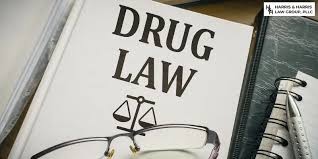How does a drug lawyer handle a case involving drug-related deaths or overdose?
Drug lawyer
Introduction:
Drug lawyers play a critical role in defending individuals accused of crimes related to drug-related deaths or overdoses. These cases are often highly complex, involving serious charges such as manslaughter, negligent homicide, or drug distribution resulting in death. Below is an overview of how a drug lawyer approaches such cases and provides a robust defense for their clients.
Initial Case Assessment
The first step a drug lawyer takes is a comprehensive assessment of the case. This involves understanding the charges, the facts surrounding the alleged incident, and the evidence against the client. They will review police reports, witness statements, medical examiner findings, and any other relevant documentation. This analysis helps the lawyer identify potential weaknesses in the prosecution’s case and areas to build a defense.
Challenging the Evidence
In cases involving drug-related deaths or overdoses, the prosecution’s evidence often includes toxicology reports, drug paraphernalia, and testimony from witnesses or experts. Drug lawyer scrutinize this evidence to uncover inconsistencies or procedural errors. For example, they may challenge the chain of custody for toxicology samples, question the accuracy of drug testing methods, or argue that evidence was obtained through illegal searches or seizures.
Establishing Lack of Causation
A critical element in these cases is proving causation that the defendant’s actions directly led to the overdose or death Drug Trafficking Lawyer work to establish reasonable doubt regarding causation. They may argue that the victim’s death resulted from factors beyond their client’s control, such as pre-existing medical conditions, interactions with other substances, or the victim’s own decisions. Expert witnesses, such as medical professionals or toxicologists, can provide testimony supporting these arguments.
Investigating Alternative Theories
Drug Smuggling Lawyer often explore alternative theories to explain the events leading to the drug-related death or overdose. For instance, they may argue that another individual supplied the drugs or that the victim obtained them through means unrelated to the defendant. This approach can move the concentrate away from the denounced and bring uncertainty into the arraignment's account.

Given the severity of the charges, drug lawyers may negotiate plea agreements with prosecutors to secure reduced charges or lighter sentences. For example, instead of facing a manslaughter charge, the defendant might agree to plead guilty to a lesser offense, such as drug possession or reckless endangerment. Plea deals can provide a more predictable outcome and reduce the risk of harsher penalties at trial.
Preparing for Trial
In the event that the case continues to preliminary, drug legal counselors foster an exhaustive safeguard system. This involves selecting and preparing witnesses, crafting persuasive arguments, and presenting evidence that supports their client’s case. During the trial, they cross-examine prosecution witnesses to challenge their credibility and highlight weaknesses in the prosecution’s case.
Advocating for Mitigating Factors
In cases where a conviction is likely, Prescription Drugs Lawyer advocate for mitigating factors during sentencing. These factors might include the defendant’s lack of prior criminal history, evidence of rehabilitation efforts, or their role as a minor participant in the incident. By highlighting these factors, lawyers aim to secure a more lenient sentence for their clients.
Conclusion
Handling a case involving drug-related deaths or overdoses requires a nuanced approach that combines legal expertise, strategic planning, and a deep understanding of drug laws and medical evidence. Drug lawyers play an essential role in ensuring their clients receive a fair trial, challenging the prosecution’s case, and advocating for the best possible outcome. These cases are emotionally charged and legally complex, making the role of a skilled defense attorney indispensable in navigating the intricacies of the legal system.